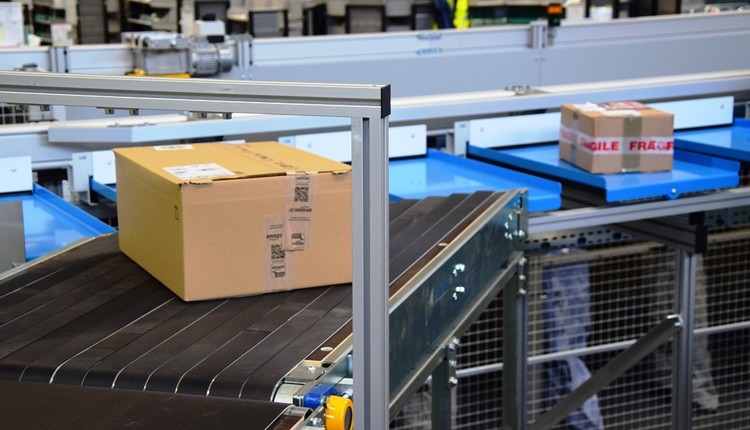DETROIT, June 16, 2009 - The world will not emerge from the current recession without a reliance on global trade, the chairman and CEO of UPS said today.
Addressing an audience of government and business leaders at the Detroit Economic Club's National Summit, UPS CEO Scott Davis described global trade as a "positive force" at a time when "we are operating without a map and without precedent."
"As many as 57 million Americans are working for companies engaged in global trade," Davis added. "One in every five manufacturing jobs is linked to exports of goods and services."
But if global trade is to help vanquish the global recession and become an even bigger force for the economic growth of smaller nations, the world must address three imperatives, the CEO continued. They include the creation of a system of trade that not only is fair and rational but compassionate; deploying technology to reduce the friction that today slows down the flow of commerce, and moving immediately to rebuild transportation infrastructures.
"Trade is a major force for good, for growth and for jobs," Davis said. "The threats are from both economic turmoil and the protectionist impulses it drives. We must argue that protectionism is the worst response at the worst time. We can't let political expediency cloud global reality."
It also is clear, however, that all countries must do a better job of helping those workers who are displaced by global trade.
"We are going to have to pay more attention to those displaced," Davis said. "I see a very encouraging step in that direction with the return of the expired Trade Adjustment Assistance Act as part of the stimulus package. With this we can reposition the American workforce and give our workers the skills to stay in the global game."
The second imperative of using technology to lubricate the flow of commerce will be critical to businesses if they want to flourish in a global marketplace, Davis continued. Companies should not accept the delays, for example, that come with a reliance on paper customs forms to move items across a border.
"Global competitive advantage means the right product at the right place, at the right time and at the right cost," he said, noting that will require the deployment of new technologies to better "see" and control goods moving around the world.
Finally, the "infrastructure of trading partners must be up to the demands that a new era of country cooperation and company connectivity will place on it," Davis said. "The U.S. is falling behind, and we're already paying a price. Our ports aren't deep enough; our inland waterway locks are functionally obsolete; our highways are jammed, and declining rail capacity is causing choke points across the country."
The effort to solve these problems, he noted, will "be measured in years and billions of dollars."
"The power of global trade is undeniable," Davis concluded. "It changes lives, reduces conflict and gives us the motivation and the means to address shared issues. We have to do it all and we have to do it right. The future of the global economy depends on it."
UPS (NYSE: UPS) is the world's largest package delivery company and a global leader in supply chain and freight services. With more than a century of experience in transportation and logistics, UPS is a leading global trade expert equipped with a broad portfolio of solutions. Headquartered in Atlanta, Ga., UPS serves more than 200 countries and territories worldwide. The company can be found on the Web at UPS.com.
Addressing an audience of government and business leaders at the Detroit Economic Club's National Summit, UPS CEO Scott Davis described global trade as a "positive force" at a time when "we are operating without a map and without precedent."
"As many as 57 million Americans are working for companies engaged in global trade," Davis added. "One in every five manufacturing jobs is linked to exports of goods and services."
But if global trade is to help vanquish the global recession and become an even bigger force for the economic growth of smaller nations, the world must address three imperatives, the CEO continued. They include the creation of a system of trade that not only is fair and rational but compassionate; deploying technology to reduce the friction that today slows down the flow of commerce, and moving immediately to rebuild transportation infrastructures.
"Trade is a major force for good, for growth and for jobs," Davis said. "The threats are from both economic turmoil and the protectionist impulses it drives. We must argue that protectionism is the worst response at the worst time. We can't let political expediency cloud global reality."
It also is clear, however, that all countries must do a better job of helping those workers who are displaced by global trade.
"We are going to have to pay more attention to those displaced," Davis said. "I see a very encouraging step in that direction with the return of the expired Trade Adjustment Assistance Act as part of the stimulus package. With this we can reposition the American workforce and give our workers the skills to stay in the global game."
The second imperative of using technology to lubricate the flow of commerce will be critical to businesses if they want to flourish in a global marketplace, Davis continued. Companies should not accept the delays, for example, that come with a reliance on paper customs forms to move items across a border.
"Global competitive advantage means the right product at the right place, at the right time and at the right cost," he said, noting that will require the deployment of new technologies to better "see" and control goods moving around the world.
Finally, the "infrastructure of trading partners must be up to the demands that a new era of country cooperation and company connectivity will place on it," Davis said. "The U.S. is falling behind, and we're already paying a price. Our ports aren't deep enough; our inland waterway locks are functionally obsolete; our highways are jammed, and declining rail capacity is causing choke points across the country."
The effort to solve these problems, he noted, will "be measured in years and billions of dollars."
"The power of global trade is undeniable," Davis concluded. "It changes lives, reduces conflict and gives us the motivation and the means to address shared issues. We have to do it all and we have to do it right. The future of the global economy depends on it."
UPS (NYSE: UPS) is the world's largest package delivery company and a global leader in supply chain and freight services. With more than a century of experience in transportation and logistics, UPS is a leading global trade expert equipped with a broad portfolio of solutions. Headquartered in Atlanta, Ga., UPS serves more than 200 countries and territories worldwide. The company can be found on the Web at UPS.com.




